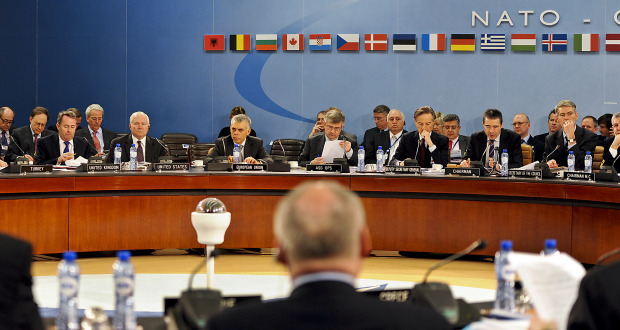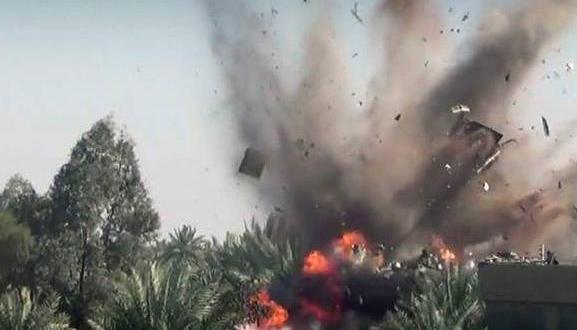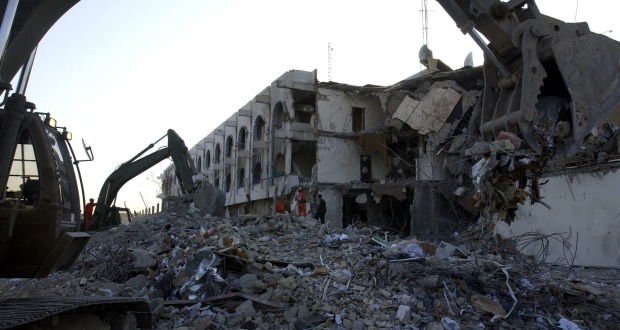Matthew Lower
October 2, 2014
Europe, Latest Articles, Middle East and North Africa, The Policy Unit
The 2014 North Atlantic Treaty Organisation summit in Wales was billed as arguably the most important for the alliance following the Cold War. Against a backdrop of tension in Ukraine and unrelenting chaos in the Middle East, the stakes are both immediate and long-term.
Read More »
Stina Hartikainen
October 1, 2014
Latest Articles, Sub-Saharan Africa, The Policy Unit
When the most recent state in the world celebrated its third anniversary in July this year, it was amid renewed ethnic violence and a protracted refugee crisis influencing both the country and the wider region. Having fought for independence from Sudan for decades, the South Sudanese state established in 2011 exhibit all the signs of a weak, and possibly failing, state.
Read More »
Jacob Sharpe
September 29, 2014
Latest Articles, The Policy Unit
Hastings Ismay, the first Secretary General of the North Atlantic Treaty Organization (NATO), famously stated that NATO was meant to “keep the Russians out, the Americans in, and the Germans down.”[1] Following the collapse of the Soviet Union, it would be difficult to argue that NATO had been unsuccessful in attaining these goals. Russia no longer posed a substantial threat to NATO member states, substantial amounts of American political will and troops remain committed to Europe, and a resurgent and militaristic Germany is a laughable thought.
Read More »
Huma Malik
September 23, 2014
Latest Articles, Sub-Saharan Africa, Uncategorized
There has been an emerging tension between liberal top-down peacebuilding and the growing belief that grassroots bottom up solutions are required alongside wider national level approaches. Intervention and peacebuilding in Africa have largely been shaped by militaristic, externally led, top-down approaches. These approaches have had varying degrees of success, with local populations often feeling alienated from peacebuilders and their externally imposed, ill-fitting intervention strategies. These interventions have historically shown a disregard for cultural context and local processes that are key to building sustainable peace during and after conflict.
Read More »
Marc Simms
September 19, 2014
Latest Articles, Security and Defence, Sub-Saharan Africa
Though the Islamist insurgency of Boko Haram has been raging in Nigeria since 2009, perhaps the defining moment of the conflict was the 14th of April this year, when militants kidnapped over 200 female students in Chibok, with the intent of selling them into slavery, or else marrying them to members of the group.
Read More »
Julie Lenarz
September 17, 2014
HSC in the Media, Iraq and Syria, Latest Articles
On 16th September, 2014, the HSC’s Executive Director, Julie Lenarz, was asked to comment on the situation in Iraq by the Evening Standard. “We welcome the Prime Minister’s announcement that the government will take whatever steps necessary to confront ISIS. ...
Read More »
Julie Lenarz
September 17, 2014
HSC in the Media, Latest Articles
The HSC’s Executive Director, Julie Lenarz, was on BBC Radio Drivetime debating Islamic extremism and Western foreign policy.
Read More »
Carolina Rocha da Silva
September 17, 2014
Latest Articles, Middle East and North Africa
In the past month, two American journalists, James Foley and Steven Sotloff, and one British aid worker, David Haines, were beheaded by the Islamic State (IS), bringing to the public fore the question of kidnapping for ransom (KFR). Terror-related KFR is a worrying, growing and increasingly violent trend that raises a difficult dilemma to governments: should states, businesses and families comply with terrorist groups in order to save the lives of the kidnapped, or should these men be left behind in order to fight against terrorism? What remains certain is that the payment of ransom will continue to help financially and ideologically sustain terror groups.
Read More »
Ielizaveta Rekhtman
September 15, 2014
Europe, Latest Articles, The Policy Unit
On July 24th two parliamentary factions left the “European choice” coalition in the Ukrainian parliament.[1] This coalition was formed in February as a result of the Maidan protests. On August 25th, after a month of the coalition breakup, president Poroshenko exercised his constitutional right to dissolve parliament and call for elections, which are likely to be held on October 26th.
Read More »
Raphael Levy
September 12, 2014
Latest Articles, Middle East and North Africa
Turkey was once one of Israel’s strongest allies in the region, though that, of course, does not necessarily mean much. Since 2010, however, and the much discussed, usually misunderstood and widely condemned Israeli action on the Mavi Marmara which saw 9 Turkish citizens killed, Turkey and Israel have not had diplomatic relations, despite a well-publicised apology and other efforts made.[1] With the latest escalation in Gaza between Israel and Hamas, diplomatic relations seem as far away as they ever have been.
Read More »

 Human Security Centre Human Rights and International Security Research
Human Security Centre Human Rights and International Security Research



